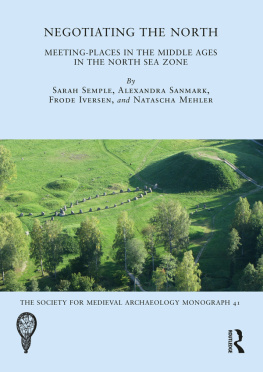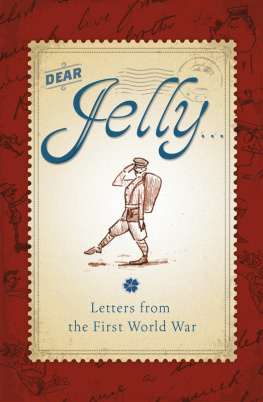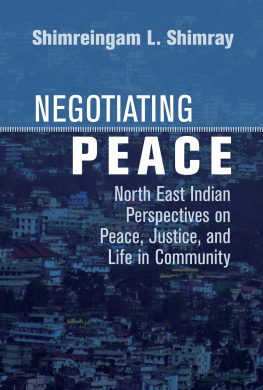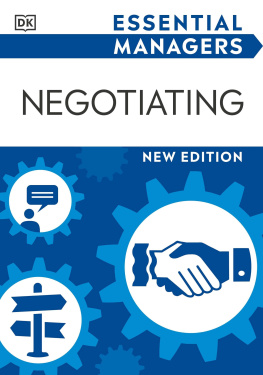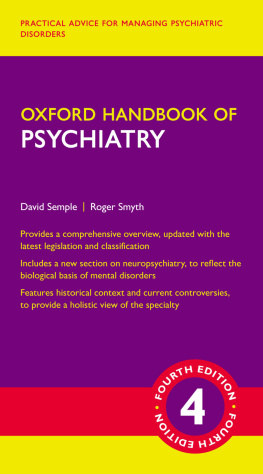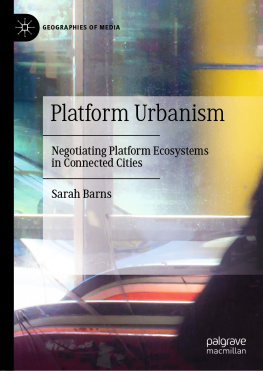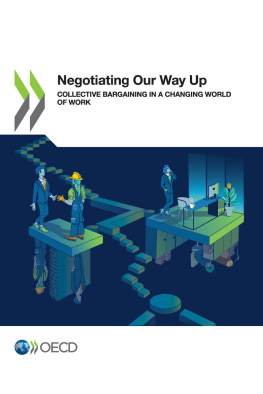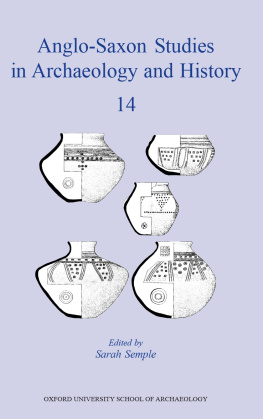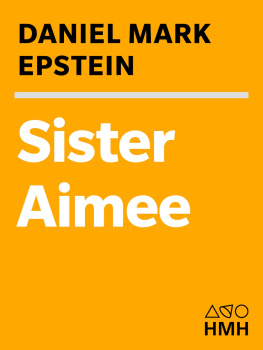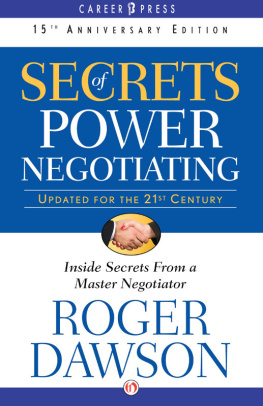THE SOCIETY FOR MEDIEVAL ARCHAEOLOGY MONOGRAPH 41
Series Editors
A LEJANDRA G UTIRREZ
G ABOR T HOMAS
NEGOTIATING THE NORTH: MEETING-PLACES IN THE MIDDLE AGES IN THE NORTH SEA ZONE
First published 2021
by Routledge
2 Park Square, Milton Park, Abingdon, Oxon OX14 4RN
and by Routledge
52 Vanderbilt Avenue, New York, NY 10017
Routledge is an imprint of the Taylor & Francis Group, an informa business
2021 Sarah Semple, Alexandra Sanmark, Frode Iversen, and Natascha Mehler; individual sections, the contributors
The right of Sarah Semple, Alexandra Sanmark, Frode Iversen, and Natascha Mehler to be identified as the authors of the editorial material, and of the authors for their individual chapters, has been asserted in accordance with sections 77 and 78 of the Copyright, Designs and Patents Act 1988.
All rights reserved. No part of this book may be reprinted or reproduced or utilised in any form or by any electronic, mechanical, or other means, now known or hereafter invented, including photocopying and recording, or in any information storage or retrieval system, without permission in writing from the publishers.
Trademark notice: Product or corporate names may be trademarks or registered trademarks, and are used only for identification and explanation without intent to infringe.
British Library Cataloguing-in-Publication Data
A catalog record for this book is available from the British Library
Library of Congress Cataloging-in-Publication Data
A catalog record has been requested for this book
ISSN: 0583-9106
ISBN: 978-0-367-49311-0 (hbk)
ISBN: 978-1-003-04566-3 (ebk)
Publishers Note
This book has been prepared from camera-ready copy provided by Sarah Semple, Alexandra Sanmark, Frode Iversen and Natascha Mehler
The Society for Medieval Archaeology
www.medievalarchaeology.co.uk
Cover: Aerial photograph of the thing site at Anundshg, the proposed early top-level assembly of Vstmanland in Sweden. Photograph by Daniel Lwenborg
The volume brings together the cumulative results of a three-year project on assembly in northern Europe. The Assembly Project was funded by Humanities in the European Research Area (HERA) and was initiated in June 2010 and completed in November 2013. Four connected strands of work were led independently by Prof. Frode Iversen (University of Oslo), Dr Natascha Mehler (University of Vienna), Dr Alexandra Sanmark (University of the Highlands and Islands) and Prof. Sarah Semple (Durham University). In addition, the project hosted three PhD studentships: Halldis Hobk (University of Bergen), Marie degaard (University of Oslo) and Tudor Skinner (Durham University). Together the team has investigated the role of assembly in the processes of kingdom creation and state formation in northern Europe Individual Project 1 (IP1) (Iversen, Hobk and degaard), examined how royal power established regularised administrative systems in new subordinated provinces and conquered kingdoms in the Scandinavian homelands. IP2 (Semple and Skinner) created a historiographical basis, setting a critical context and agenda for the project. IP2 also explored the administrative patterns of authority within the Danelaw, using Yorkshire as a case-study. IP3 (Mehler) examined the economic activities of thing sites and their effects, focusing on economic activities, such as trade and crafts at or near thing sites and IP4 (Sanmark) investigated thing organisation and assembly sites in Scandinavia and in the areas of Norse settlement and colonisation in the west. The project was hosted and administered by the University of Oslo.
Four workshops took place across 201013 (see below), involving the team and invited participants from across eight European countries: At Durham (England, UK) in January 2011, Utstein (Norway) in November 2011, Kirkwall, Orkney (Scotland, UK) in September 2012 and Hall, Tyrol (Austria) in April 2013. Invitees were asked to share their research with the project and interim results were disseminated for discussion. Many of the papers have subsequently been published in two Special Issues of the Journal of the North Atlantic (Vol. 5, 2013 and Vol. 8, 2015/2016)
In addition, field investigation mostly led by Natascha Mehler and Joris Coolen took place across eight locations in the North Sea zone and involved the project team and external specialists. Combined field survey, geophysics and excavation facilitated in-depth analysis of specific sites and locales. These on-site investigations enabled the refinement of chronologies and provided insight into the locational aspects of meeting-places and associated activities. These investigations have been published as separate grey literature reports and are available online (http://www.khm.uio.no/english/research/projects/previously-projects/assembly-project/). In some instances, the results have been published in their own right (Coolen and Mehler 2014).
This volume offers the combined, final results, setting a broad and deep critical context. The focus is the assemblies and administrative systems of Scandinavia and Britain. We have interrogated a wide range of historical, cartographic, archaeological and onomastic data pertaining to early medieval and medieval administrative practices, administrative geographies and places of assembly in Norway, Sweden, Denmark, Iceland, the Faroe Islands, Scotland and in the county of Yorkshire in England which was once part of the Danelaw. Assembly in medieval Ireland was not part of our project remit and is not present in this book in terms of original research, case studies or fieldwork. Assemblies and inauguration sites and administrative levels of organisation in early medieval Ireland have been subject to a number of extensive, excellent and independent studies (e.g. Warner 1988; 2004; FitzPatrick 2004a; Gleeson 2015; 2018). Thus in this volume we acknowledge and use Irish comparanda based on this published body of work. We assess the historiography of assembly studies in Ireland alongside England and Scotland in , to provide further context for the ways in which the thing was exported as part of the Norse colonisation of unpopulated regions.
As a team and through our workshops we have created a new level of European cooperation and by sharing our datasets and results have opened up our networks and knowledge to each other and to a broader scholarly community. This has benefitted the outcomes of the project by faciliating a transnational perspective on the early development of power structures in early medieval northern Europe and the maturation of these systems in later centuries under royal control.
Finally this is a multi-authored book that reflects the integrated work of the team. The authorage reflects the contribution of its members. Alexandra Sanmark and Frode Iversen were instrumental contributors to was completed by Sarah Semple, Alex Sanmark and Natascha Mehler with contributions by Frode Iversen. Sarah Semple led the drafting, development, editing and completion of the volume as a whole.
TAP Workshops and Participants 201013
Durham, UK. January 2011
Valorisation and rhetoric: Situating assembly studies
- John Baker, Institute for Name Studies, School for English Studies, University of Nottingham.
- Stuart Brookes, Institute of Archaeology, University College London.
- Stephen Driscoll, Dept of Archaeology, University of Glasgow.
- Halldis Hobk, Dept of Archaeology, Museum of Cultural History, University of Oslo.

